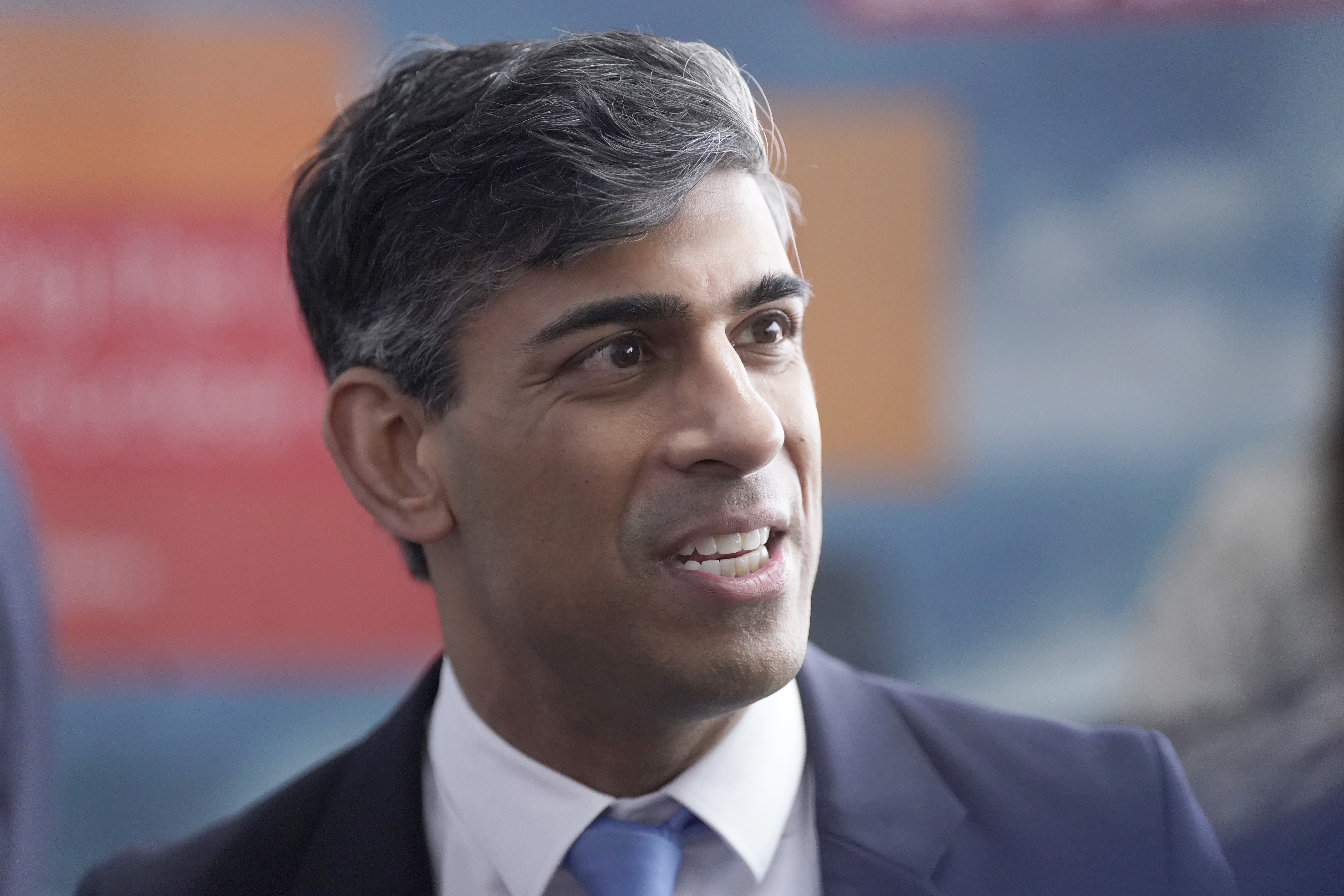Sunak defends ‘careful’ UK arms export regime amid calls to halt sales to Israel
The comments come after three Britons were among seven aid workers killed by an Israeli air strike.

Prime Minister Rishi Sunak has defended the UK’s “careful export licensing regime” amid calls for the UK to stop arms exports to Israel.
Aid organisation World Central Kitchen (WCK) confirmed British victims John Chapman, 57, James “Jim” Henderson, 33, and James Kirby, 47, who were working for the charity’s security team, were among seven of its staff killed when their convoy was struck after unloading food in Gaza.
The incident has prompted condemnation from the UK and its allies.
The Prime Minister’s comments come after a opposition politicians and a former senior diplomat urged the Government to suspend arms exports to Israel.
The SNP has meanwhile said MPs should return to the House of Commons early from their Easter break to “debate and vote on ending arms sales to Israel”.
Speaking to the Sun Newspaper’s Never Mind the Ballots show, Mr Sunak said: “I think we’ve always had a very careful export licensing regime that we adhere to.
“There are a set of rules, regulations and procedures that we’ll always follow, and I have been consistently clear with Prime Minister Netanyahu since the start of this conflict that while of course we defend Israel’s right to defend itself and its people against attacks from Hamas, they have to do that in accordance with international humanitarian law, protect civilian lives and, sadly, too many civilians have already lost their lives.
“Get more aid into Gaza. That’s what we’ve consistently called for and what we want to see actually is an immediate humanitarian pause to allow more aid in, and crucially the hostages to be released, and that’s what we’ll continue to push for.”
Lord Peter Ricketts, a former senior diplomat who chaired the Joint Intelligence Committee during the Blair government, had earlier said Israeli forces’ killing of the aid workers has sparked “global outrage” as he called for an “immediate ceasefire”.
The Government must take swift action to suspend arms exports to Israel. We must redouble our efforts to secure an immediate bilateral ceasefire
The crossbench peer, who served as national security adviser between 2010 and 2012, told BBC Radio 4’s Today programme: “I think there is abundant evidence now that Israel hasn’t been taking enough care to fulfil its obligations on the safety of civilians, and a country that gets arms from the UK has to comply with international humanitarian law, that is a condition of the arms export licensing policy.
“I think the time has come to send that signal.
“It won’t change the course of the war. It would be a powerful political message, and it might just stimulate debate in the US as well, which would be the real game-changer, if the Americans began to think about putting limits, restrictions on the use of American weapons in Israel.”
He added: “Sometimes in conflict, you get a moment where there’s such global outrage that it crystalises a sense that things can’t go on like this.
“I think – I hope – that this awful incident will serve that purpose.”
The peer said a failure by Israel to respond appropriately and show aid workers they are able to deliver supplies to areas of conflict should prompt “further steps to increase the pressure on (Israeli prime minister) Netanyahu”, including the UK no longer supplying the country with arms.
He called for “an immediate ceasefire for an extended period to open up the borders and make it safe to get aid in for those delivering it and those receiving it”, adding this could also help secure the release of hostages held by Hamas.
Liberal Democrat Leader Sir Ed Davey said ministers should “take swift action to suspend arms exports to Israel”.
He said: “The deaths of these British aid workers in Gaza is an absolute disgrace. These brave people were trying to help starving families in Gaza.
“Clearly, the thought that British-made arms could have been used in strikes such as these is completely unacceptable.”
Foreign Secretary Lord Cameron has in recent weeks come under pressure from across the political spectrum to publish legal advice he has received about UK arms exports to Israel.
Export licences could not continue to be granted for UK arms heading to Israel if there is a risk weapons could be used in a serious violation of international humanitarian law.
Before MPs left Parliament for the Easter recess, Foreign Office minister Andrew Mitchell told the Commons UK arms exports amount to “0.02% of Israel’s military imports” when questioned about the legal advice by shadow foreign secretary David Lammy.
Stephen Flynn, the SNP’s Westminster leader has written to Mr Sunak, Labour leader Sir Keir Starmer, and Speaker Sir Lindsay Hoyle, calling for an immediate recall of Parliament.
He wrote: “This situation demands that the Prime Minister comes to Parliament without further delay to outline the UK Government’s response to the killing of UK citizens by Israel, to enable MPs to scrutinise the UK Government’s response, and so that Parliament can finally debate and vote on ending arms sales to Israel.”
Bookmark popover
Removed from bookmarks